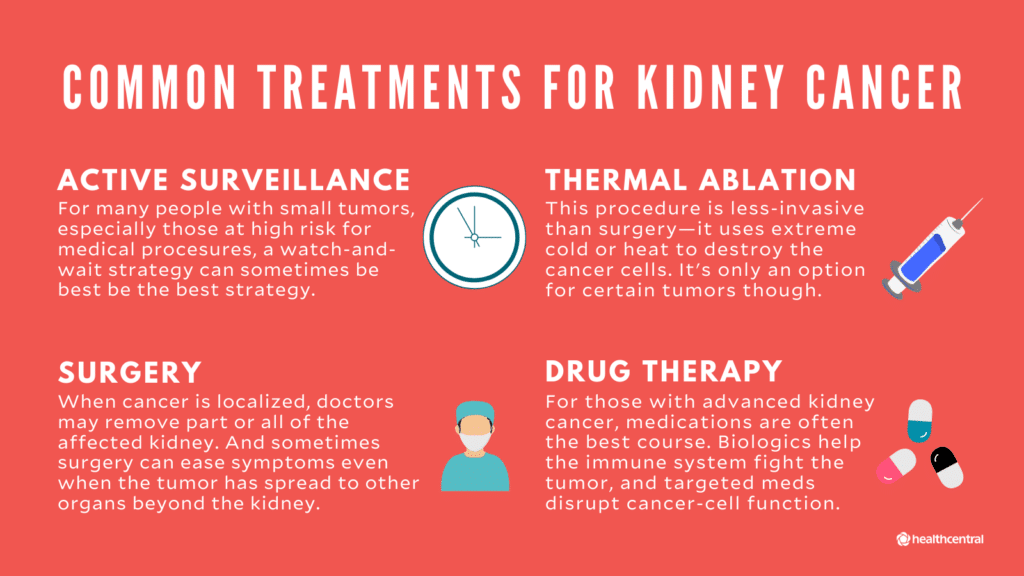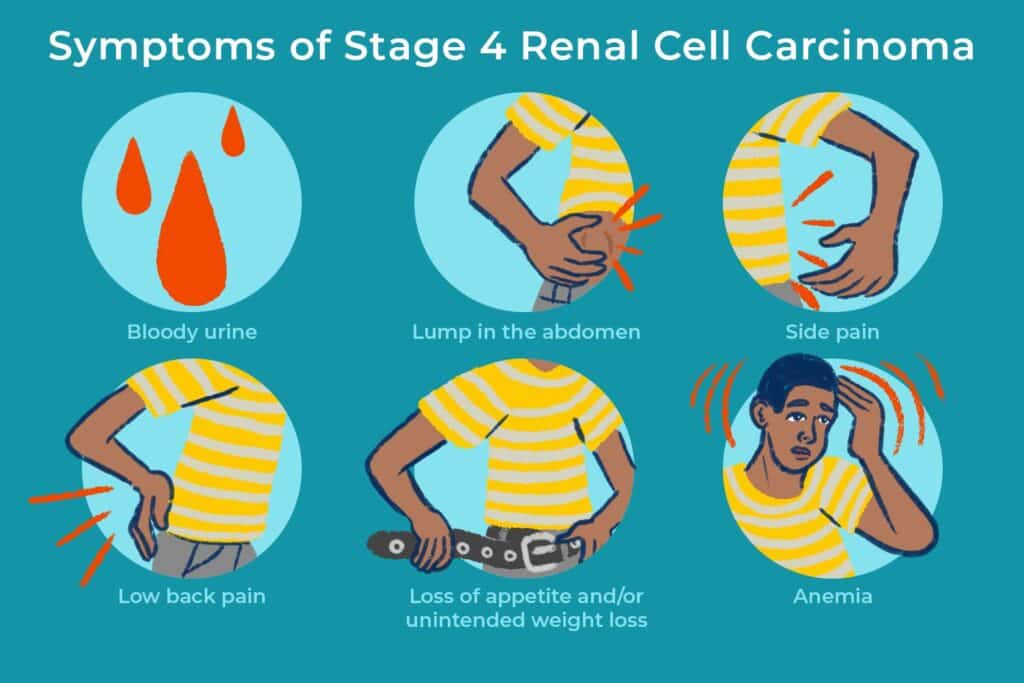Living with kidney cancer can be a challenging journey, but you are not alone. This article provides valuable insights and helpful tips to cope with the emotional and physical struggles that may accompany a diagnosis of kidney cancer. From understanding treatment options to finding support networks, this guide aims to empower you to face the challenges head-on and live a fulfilling life while managing kidney cancer. Whether you are a patient, caregiver, or friend, these tips offer a friendly helping hand in navigating this journey together.

Understanding Kidney Cancer
Kidney cancer is a type of cancer that starts in the cells of the kidneys. It occurs when cells in the kidneys grow uncontrollably, forming a tumor. This tumor can then spread to other parts of the body if not diagnosed and treated early.
What is Kidney Cancer?
Kidney cancer, also known as renal cancer, can develop in any part of the kidneys. The kidneys are responsible for filtering waste products from the blood and producing urine. When cancer cells form in the kidneys, they can disrupt the normal functioning of these vital organs.
Risk Factors for Kidney Cancer
While the exact cause of kidney cancer is not known, certain factors can increase your risk of developing this disease. Some of the common risk factors include smoking, obesity, high blood pressure, family history of kidney cancer, and certain genetic conditions. By understanding these risk factors, you can take steps to minimize your chances of developing kidney cancer.
Types of Kidney Cancer
There are several types of kidney cancer, each with its own characteristics and treatment options. The most common type is renal cell carcinoma (RCC), which accounts for approximately 90% of kidney cancer cases. Other less common types include transitional cell carcinoma, Wilms tumor (often affecting children), and renal sarcoma. Understanding the different types of kidney cancer is important for diagnosis and treatment.
Diagnosis and Treatment
Early detection and timely treatment play a crucial role in improving the outcomes for kidney cancer patients. Recognizing the symptoms and signs of kidney cancer is the first step towards diagnosis.
Symptoms and Signs of Kidney Cancer
The symptoms of kidney cancer may vary from person to person. Some common signs include blood in the urine (hematuria), abdominal pain or mass, fatigue, unexplained weight loss, and loss of appetite. If you experience any of these symptoms, it is important to consult a healthcare professional for further evaluation.
Diagnostic Tests for Kidney Cancer
To confirm a diagnosis of kidney cancer, various diagnostic tests may be conducted. These can include imaging tests such as CT scans, MRIs, and ultrasounds. Additionally, a biopsy may be performed to analyze the suspicious tissue. These tests help healthcare providers determine the extent and type of kidney cancer, which in turn guides the treatment plan.
Treatment Options for Kidney Cancer
The treatment of kidney cancer depends on several factors, including the stage and type of cancer, as well as the individual’s overall health. Common treatment options include surgery, radiation therapy, immunotherapy, targeted therapy, and chemotherapy. Treatment plans are usually tailored to each patient’s specific needs and may involve a combination of these approaches.

Lifestyle Changes
Adopting a healthy lifestyle can significantly improve the overall well-being of individuals with kidney cancer. Certain lifestyle changes can support overall health and make the body better equipped to manage cancer treatment.
Maintaining a Healthy Diet
Eating a balanced diet filled with nutritious foods can help you maintain your health during kidney cancer treatment. Focus on consuming a variety of fruits, vegetables, whole grains, and lean proteins. Limit your intake of processed foods, sugary drinks, and high-fat foods. Staying well-nourished can support your immune system and aid in the healing process.
Regular Exercise and Physical Activity
Engaging in regular physical activity is beneficial for both your physical and mental well-being. Talk to your healthcare provider about appropriate exercises for your specific circumstances. Activities such as walking, swimming, or yoga can help improve your energy levels, reduce stress, and enhance your overall quality of life.
Avoiding Tobacco and Alcohol
Smoking and excessive alcohol consumption can have detrimental effects on your health, especially when dealing with kidney cancer. Smoking is known to increase the risk of many types of cancer, including kidney cancer. Additionally, alcohol can interfere with medication effectiveness and may have negative interactions with certain cancer treatments. Quitting smoking and moderating alcohol consumption are important steps towards optimizing your health.
Managing Side Effects
Kidney cancer treatment can sometimes lead to side effects that impact your daily life. Understanding these side effects and learning how to manage them can make your treatment journey more comfortable.
Common Side Effects of Kidney Cancer Treatment
Different treatments for kidney cancer may result in various side effects. Some common side effects include nausea, vomiting, fatigue, weakness, loss of appetite, hair loss, and changes in bowel habits. It is essential to discuss these potential side effects with your healthcare team, as they can provide strategies and medications to help alleviate them.
Tips for Coping with Nausea and Vomiting
Nausea and vomiting can be distressing side effects of kidney cancer treatment, but there are ways to manage these symptoms. Some tips include eating small, frequent meals, avoiding strong smells, staying hydrated, and discussing anti-nausea medications with your healthcare provider. These strategies can help alleviate symptoms and improve your overall comfort.
Dealing with Fatigue and Weakness
Fatigue and weakness are common side effects experienced by kidney cancer patients. To manage these symptoms, it is important to prioritize rest and sleep. Take breaks throughout the day, listen to your body’s signals, and conserve your energy for essential activities. Engaging in light exercises and maintaining a balanced diet can also help combat fatigue and improve overall strength.

Emotional Support and Mental Health
Coping with a kidney cancer diagnosis can bring about a range of emotions. Seeking emotional support and taking care of your mental health is an important aspect of your overall well-being.
Seeking Emotional Support
Dealing with a cancer diagnosis can be emotionally challenging. It is essential to talk to trusted friends, family members, or healthcare professionals about your feelings and concerns. They can offer a listening ear and provide emotional support during this difficult time. Remember that you do not have to face kidney cancer alone – there are people who care and are available to help.
Joining Support Groups
Connecting with others who are going through similar experiences can be incredibly helpful. Consider joining a kidney cancer support group in your community or online. These groups provide a safe space for sharing experiences, gaining insights, and finding comfort in knowing that you are not alone in your journey.
Psychotherapy and Counseling Options
Professional therapy and counseling services can be beneficial for individuals dealing with the emotional impact of kidney cancer. A psychologist or counselor trained in oncology may help you navigate the complex emotions, manage stress, and develop coping strategies. These services can provide the tools and support you need to maintain your emotional well-being.
Financial Assistance and Insurance
Dealing with kidney cancer can be an expensive endeavor, and navigating the healthcare system and insurance can add to the stress. It is essential to understand your options and seek appropriate financial assistance.
Navigating the Healthcare System
Understanding the healthcare system and its intricacies is vital when managing kidney cancer treatment. Familiarize yourself with the resources available to you, such as social workers or patient advocacy groups, who can guide you through the process and help you access necessary services.
Understanding Insurance Coverage
Review your insurance policy carefully to determine the extent of coverage for kidney cancer treatment. This includes understanding deductibles, co-pays, and any limitations or exclusions. If you have any questions or concerns, reach out to your insurance provider for clarification.
Financial Assistance Programs
There are various financial assistance programs available for individuals with kidney cancer. These programs can help cover treatment costs, prescription medications, transportation expenses, and other related services. Research local and national resources, such as government assistance programs and nonprofit organizations, to explore potential avenues of financial support.

Taking Care of Yourself
During the kidney cancer journey, it is important to prioritize self-care and focus on your overall well-being. Simple actions can have a significant impact on your physical and mental health.
Practicing Self-Care
Self-care involves activities that nourish and rejuvenate your mind, body, and soul. Engage in activities that you enjoy, such as reading, listening to music, taking baths, or practicing meditation. Taking time for self-care can help reduce stress, improve your mood, and increase your resilience.
Setting Achievable Goals
Setting small, achievable goals can provide a sense of accomplishment and boost your self-confidence. Break down larger tasks into manageable steps, and focus on progress rather than perfection. Celebrate even the smallest victories along your kidney cancer journey.
Managing Stress and Anxiety
Stress and anxiety are common emotions when dealing with kidney cancer. Finding healthy ways to manage these feelings is essential. Techniques such as deep breathing exercises, mindfulness, and engaging in relaxation activities can help reduce stress and promote a sense of calm. Additionally, consider seeking professional help if you find that stress and anxiety are interfering with your daily life.
Supporting Your Loved Ones
A kidney cancer diagnosis affects not only the individual but also their loved ones. Providing support and understanding can go a long way in navigating this challenging journey together.
Educating Family and Friends about Kidney Cancer
Make an effort to educate your family and friends about kidney cancer. Help them understand the disease, its treatments, and potential side effects. This knowledge will enable them to offer appropriate support and be more understanding of your unique needs.
Communicating Your Needs
Effective communication is essential when it comes to receiving support from your loved ones. Clearly express your needs, whether it’s physical, emotional, or practical assistance. Let your loved ones know what they can do to help you during this time.
Easing Caregiver Burden
Caregivers play a vital role in supporting individuals with kidney cancer. However, caring for a loved one can be physically and emotionally demanding. Encourage caregivers to take breaks, seek support through their own networks, and prioritize self-care. By easing caregiver burden, you are supporting their well-being as well.

Follow-up Care and Monitoring
After the initial treatment for kidney cancer, regular check-ups and monitoring are crucial to ensure that everything is on track.
Importance of Regular Check-ups
Regular check-ups are essential for monitoring your kidney cancer treatment outcomes. These appointments allow healthcare providers to assess your progress, detect any signs of cancer recurrence, and address any concerns or side effects that may have emerged.
Additional Tests and Screenings
In addition to check-ups, your healthcare provider may recommend additional tests and screenings as part of your follow-up care. These can include blood tests, imaging scans, or other examinations as deemed necessary. These tests help ensure early detection of any potential issues and allow for timely intervention.
Managing Long-term Effects
Kidney cancer treatments may have long-term effects, such as changes in kidney function, hormonal imbalances, or other late complications. Regular monitoring and proper management of these effects are essential for maintaining your overall health and well-being. Be sure to discuss any concerns or new symptoms with your healthcare team.
Finding Hope and Positivity
Maintaining a positive mindset and seeking inspiration and motivation can help you navigate the challenges of kidney cancer with strength and resilience.
Focusing on the Present Moment
Practicing mindfulness and focusing on the present moment can help alleviate anxiety and promote a sense of calm. Engage in activities that bring you joy and help you stay grounded. Embracing the present moment allows you to appreciate the small joys in life and find solace in the here and now.
Finding Inspiration and Motivation
Seek out stories of kidney cancer survivors who have overcome challenges and achieved remarkable feats. These stories can instill a sense of hope and inspiration, reminding you that you are not alone in your journey and that positive outcomes are possible.
Embracing a Positive Mindset
Maintaining a positive mindset can have a profound impact on your well-being. Surround yourself with positivity, whether it’s through supportive relationships, engaging in activities you love, or practicing gratitude. Embrace the power of positivity to fuel your resilience and optimize your overall quality of life.